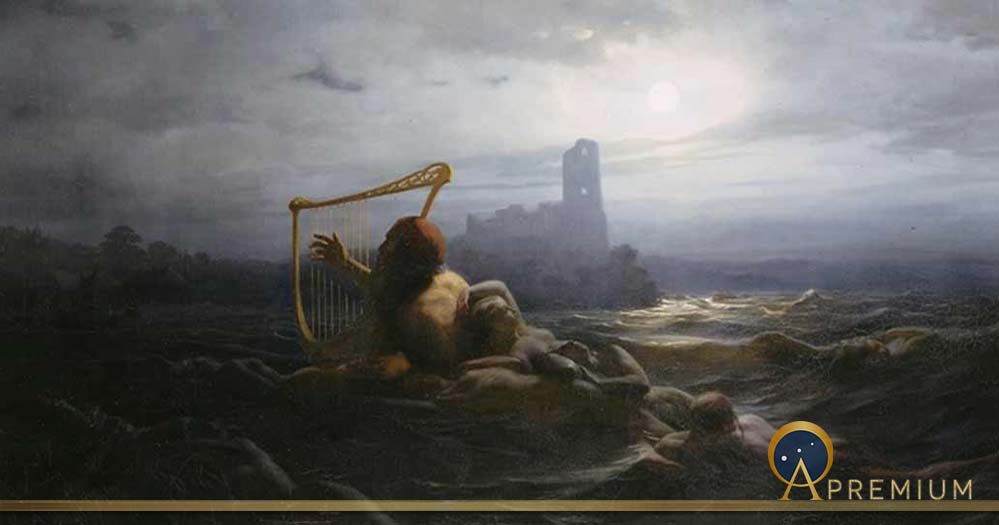The Archetypal Origins Of Norse And Celtic Sea Deities
Long before the chemical composition of water was discovered, ancient cultures recognized it as the elixir of life, protected and ruled over by powerful deities. Only in the late 19th century chemist Henry Cavendish (1731-1810) became the first scientist to correctly describe the composition of water, after mixing hydrogen and oxygen to create an explosion (oxyhydrogen effect). This experiment was set up after the scientific enlightenment fell in with the ancient knowledge that ‘water is life’ and that all life on earth depend on the nutritious liquid, including all of human civilization. While recognized as essential to survival, ironically, the influence of water on public health and the development of sustainable agricultural settlements, has created a conundrum humankind faces today: how to source and preserve water for human consumption and agricultural purposes, and how to manage the waste humans produce after consuming it.

Ancient cultures valued water: Bushmen drinking precious water preserved in an ostrich egg (Image: DVL2/ CC BY-SA 3.0)
With water accepted globally as the number one fuel for all life, it is no wonder then that the histories, mythologies and folklore of seafaring ancient cultures are drenched with a variety of water deities who emerged from, guarded and ruled the fates of people working and traveling on the rivers, seas and oceans. Most famously, Poseidon was the Olympian god of the sea, also associated with floods, droughts, earthquakes and horses, and his personality lived on in his Roman equivalent, Neptune. However, in other ancient cultures there were many lesser-known aquatic deities whose domains were the Norse and Celtic seas, resonating with the gods of ancient India.

Sculpture of the sea god Poseidon in Copenhagen Port. ( Hans Andersen/ CC BY-SA 3.0)
The Difference Between Sea Gods, And The Sea
‘Ægir’ is the Old Norse word personifying 'sea' and used in Skaldic Poetry, being one of two kinds of Old Norse poetry, the other being Eddic Poetry. Norse scholar John Lindow’s 2002 book Norse Mythology: A Guide to Gods, Heroes, Rituals, and Beliefs tells that ships were described in the old Norse world as ‘Ægir's horses’ and waves were the ‘daughters of Ægir’. The beginnings of both the Orkneyinga saga ( Saga of the Orkney Islanders) and Hversu Noregr byggdisk ( How Norway Was Settled) talk of Fornjót the jötunn king having three sons: Hlér (sea), whom he called Ægir, a second named Logi (fire), and a third called Kári (wind). A jötunn or jötnar refers to a type of entity contrasted with gods and other non-human figures, such as dwarfs and elves.
Like this Preview and want to read on? You can! JOIN US THERE ( with easy, instant access ) and see what you’re missing!! All Premium articles are available in full, with immediate access.
For the price of a cup of coffee, you get this and all the other great benefits at Ancient Origins Premium. And - each time you support AO Premium, you support independent thought and writing.
Ashley Cowie is a Scottish historian, author and documentary filmmaker presenting original perspectives on historical problems, in accessible and exciting ways. His books, articles and television shows explore lost cultures and kingdoms, ancient crafts and artifacts, symbols and architecture, myths and legends telling thought-provoking stories which together offer insights into our shared social history. www.ashleycowie.com
Top Image: Näcken och Ägirs döttrar, by Nils Blommér, depicting Ægir and his nine wave daughters (1850) (Public Domain)
By: Ashley Cowie



















